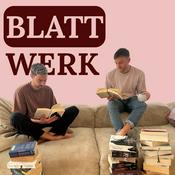1486 Episoden
- How have jobs changed in the last 150 years? In The Division of Rationalized Labor (Harvard UP, 2025) Michelle Jackson, an Associate Professor in the Department of Sociology at Stanford University examines the original theories about the division of labour and explains why many predictions about the future of work did not emerge. Drawing on detailed case studies of medicine, law, education and manufacturing the book charts the intertwined rise of the sciences, the expansion of occupational responsibilities, and the increasing complexity of work. Theorizing the paradox of specialization, alongside detailed empirical analysis, the book is essential reading across the social sciences and for anyone interested in understanding work and occupations today.
Learn more about your ad choices. Visit megaphone.fm/adchoices Raiford Guins, "King PONG: How Atari Bounced Across Markets to Make Millions" (MIT Press, 2026)
20.2.2026 | 1 Std. 15 Min.PONG is one of the longest- and most consistently circulating video games. Released in 1972, it remains at our fingertips as Android or iOS app, hosted at freepong.org and the Internet Archive, and even released as A Tiny Game of Pong for the Apple Watch. Despite its simplicity and ubiquity, Atari’s PONG encapsulates far more than the history of a video game and an iconic game company. King PONG: How Atari Bounced Across Markets to Make Millions (MIT Press, 2026) is the first book dedicated to an unassuming game that changed the world. Through the prisms of product positioning, market development, and category creation, Professor Raiford Guins answers the question of why Atari’s inaugural product succeeded and why it endures.The author of Game After and Atari Design, and an excavator of the “Atari landfill” in New Mexico, Professor Guins brings us a unique history that reconsiders the launch of Atari’s PONG through the lens of the company’s business practices. He follows the young Silicon Valley startup from its early days of positioning its new product within the existing coin-op amusement industry to its establishment of a consumer industry for home video games—a story of remarkable market development innovation. Written with a passion for video games and a historian’s insight, the book animates the business exploits of one of the fastest growing and most influential companies ever.
This interview was conducted by Dr. Miranda Melcher whose book focuses on post-conflict military integration, understanding treaty negotiation and implementation in civil war contexts, with qualitative analysis of the Angolan and Mozambican civil wars. You can find Miranda’s interviews on New Books with Miranda Melcher, wherever you get your podcasts.
Learn more about your ad choices. Visit megaphone.fm/adchoicesW. Patrick McCray, "README: A Bookish History of Computing from Electronic Brains to Everything Machines" (MIT Press, 2025)
19.2.2026 | 48 Min.In README: A Bookish History of Computing from Electronic Brains to Everything Machines (MIT Press, 2025), historian Dr. Patrick McCray argues that in order for computers to become ubiquitous, people first had to become interested in them, learn about them, and take the machines seriously. A powerful catalyst for this transformation was, ironically, one of the oldest information technologies we have: books. The author uses a carefully chosen selection of books, some iconic and others obscure, to describe this technological revolution as it unfolded in the half-century after 1945. The book begins with a fundamental question: How does a new technology become well known and widespread? Dr. McCray answers this by using books as a window into significant moments in the history of computing, publishing, and American culture.README offers a literary history of computers and, more broadly, information technologies between World War II and the dot-com crash of the early 21st century. From the electronic brains and cybernetics craze of the 1940s to the birth of AI, the rise of the personal computer, and the internet-driven financial frenzy of the 1990s, books have proven a durable and essential way for people to learn how to use and think about computers. By offering a readable half-century of bookish history, README explains how computers became popular and pervasive.
This interview was conducted by Dr. Miranda Melcher whose book focuses on post-conflict military integration, understanding treaty negotiation and implementation in civil war contexts, with qualitative analysis of the Angolan and Mozambican civil wars. You can find Miranda’s interviews on New Books with Miranda Melcher, wherever you get your podcasts.
Learn more about your ad choices. Visit megaphone.fm/adchoicesDenys Gorbach, "The Making and Unmaking of the Ukrainian Working Class: Everyday Politics and Moral Economy in a Post-Soviet City" (Berghahn Books, 2024)
19.2.2026 | 1 Std. 9 Min.Industrial workers in Ukraine have a complex political lifeworld because their political action aimed at bringing radical social change coexists with a demobilizing stance that condemns all political participation as corrupt. This contradictory attitude to politics defines the character of populist mass mobilizations that shook Ukraine in 2004 and 2014, as well as the electoral overhaul of 2019 and the popular response to the Russian invasion in 2022. Based on three years of fieldwork in the city of Kryvyi Rih, the book focuses on the moral economy that constitutes the working-class and structures its relations with other social groups.
The Making and Unmaking of the Ukrainian Working Class is written by Denys Gorbach, published in 2024 by Berghan Books.
Denys Gorbach is a teaching and research adjunct at the University of Versailles-Saint-Quentin.
Learn more about your ad choices. Visit megaphone.fm/adchoicesDonald Chew, "The Making of Modern Corporate Finance: A History of the Ideas and How They Help Build the Wealth of Nations" (Columbia Business School Publishing, 2025)
18.2.2026 | 1 Std. 14 Min.In The Making of Modern Corporate Finance: A History of the Ideas and How They Help Build the Wealth of Nations (Columbia Business School Publishing, 2025) Donald Chew profiles key figures in the development of modern corporate finance while emphasizing their counterintuitive lessons for shareholders, companies, and countries. He deals with such questions as: Why did the stagflation of the 1970s prove so painful and protracted? What explains the U.S. stock market’s forty-year run of 12 percent average annual returns? Why is Japan still mired in a decades-long recession? What accounts for the resilience of U.S. stock markets in the wake of COVID and the Fed’s interest rate hikes? Chew argues that answers to these questions lie ideas formulated and tested by finance scholars―notably, an efficient stock market in which prices reflect the long-run values of public companies and a market for corporate control that exerts pressure on management.
Learn more about your ad choices. Visit megaphone.fm/adchoices
Weitere Kunst Podcasts
Trending Kunst Podcasts
Über New Books in Economic and Business History
This podcast is a channel on the New Books Network. The New Books Network is an academic audio library dedicated to public education. In each episode you will hear scholars discuss their recently published research with another expert in their field.
Discover our 150+ channels and browse our 28,000+ episodes on our website: newbooksnetwork.com
Subscribe to our free weekly Substack newsletter to get informative, engaging content straight to your inbox: https://newbooksnetwork.substack.com/
Follow us on Instagram and Bluesky to learn about more our latest interviews: @newbooksnetwork
Podcast-WebsiteHöre New Books in Economic and Business History, 99% Invisible und viele andere Podcasts aus aller Welt mit der radio.de-App
Hol dir die kostenlose radio.de App
- Sender und Podcasts favorisieren
- Streamen via Wifi oder Bluetooth
- Unterstützt Carplay & Android Auto
- viele weitere App Funktionen
Hol dir die kostenlose radio.de App
- Sender und Podcasts favorisieren
- Streamen via Wifi oder Bluetooth
- Unterstützt Carplay & Android Auto
- viele weitere App Funktionen

New Books in Economic and Business History
Code scannen,
App laden,
loshören.
App laden,
loshören.









































